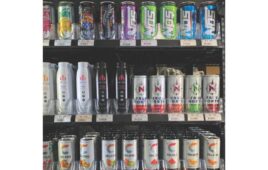
All but one of the Food and Drug Administration (FDA) decisions on millions of premarket tobacco applications (PMTAs) for electronic nicotine delivery systems (ENDS) and e-liquids thus far have resulted in marketing denial orders (MDOs).
“The number of denial orders was anticipated back in 2014 when Consumer Advocates for Smoke-free Alternatives Association (CASAA) and other experts warned the FDA that subjecting new nicotine products to the same authorization hurdles for cigarettes would exclude 98% of manufacturers,” said Alex Clark, executive director, CASAA.
It wasn’t until mid-October that the agency announced its first PMTA approval, permitting ongoing sales of R.J. Reynolds Vapor Co.’s Vuse Solo, a closed system e-cigarette, and two of its tobacco-flavored replacement pods. However, the FDA rejected applications for 10 flavored Vuse Solo cartridges, but failed to identify them publicly. The National Association of Convenience Stores (NACS) joined other retail industry organizations decrying this oversight, especially because MDOs demand items be immediately pulled from store shelves.
“Our members do not need any confidential or detailed information about the products, they simply need to know the names of the products, so that they can be identified and taken off the market,” the NACS letter stated.
As of early November, the FDA still hadn’t released PMTA decisions for other big-name vape brands, such as JUUL.
Despite all the segment shifting over the past few months, it’s been business as usual for the 80-plus Crosby’s convenience stores in New York and Pennsylvania.
“The category has always had a little uncertainty, but because we didn’t carry those MDO products, it hasn’t impacted our vape category. If anything, the flavor ban a couple months ago took a bigger bite out of the business,” said Doug Galli, former vice president/general manager for the c-store chain, part of Reid Petroleum, based in Lockport, N.Y. He has since moved on to a special projects position.

In fact, Galli noted that vape sales are more than keeping pace.
“Other tobacco products, vape and nicotine replacement products have been doing very good for us, and it continues to grow,” he said.
NielsenIQ Total U.S. Convenience data over the 52 weeks ending Oct. 23, 2021, registered an increase in dollar sales of 13.8% for both tobacco alternatives vapor and electronic cigarettes. This is consistent with the same period last year, which landed at 14.0% for each. Plus, the research firm reported that Vuse gained a point in market share for the four weeks ending Oct. 23, 2021, and dollar sales jumped more than 54%.
What to Watch
The FDA’s actions aren’t the only regulations affecting the category heading into 2022. In Massachusetts, the first state to pass a comprehensive flavor and menthol tobacco ban, lawmakers have proposed repealing elements of the law. One bill, for example, would exempt products granted FDA marketing approval or modified risk status.
“The data shows the ban hasn’t worked. Increased sales in New Hampshire and Rhode Island coupled with conversion to traditional tobacco flavored cigarettes in Massachusetts prove this out,” said Jon Shaer, executive
director, New England Convenience Store & Energy Marketers Association. “It’s difficult for retailers to watch the sales occur, just not through their stores.”
“One of my issues is that when they put the ban into effect, it didn’t allow for PMTA or modified risk from the FDA,” added Anna Bettencourt, senior category manager for Haffner’s c-store chain, owned by Lawrence, Mass.-based Energy North Inc. “If the FDA clears products to be on the market, then states should allow them to be sold.”
Another development that could benefit the vape category for c-stores is the final ruling on the Preventing Online Sales of E-Cigarettes to Children Act (POSECCA). The law forbids the delivery of vape products to residences throughout the continental U.S. via the U.S. Postal Service. Several delivery services, including FedEx, also have declared they would no longer transport vape items to homes.
“Consumer access is being tested with the new regulations,” Clark said.
Perhaps the most intriguing component of this legislation is that Congress did not distinguish between tobacco plant-based and synthetic nicotine products. Currently, it’s unclear whether synthetic nicotine falls under FDA jurisdiction. It’s certainly a product line worth watching for its potential to replenish convenience stores’ back bars after so many MDOs.




